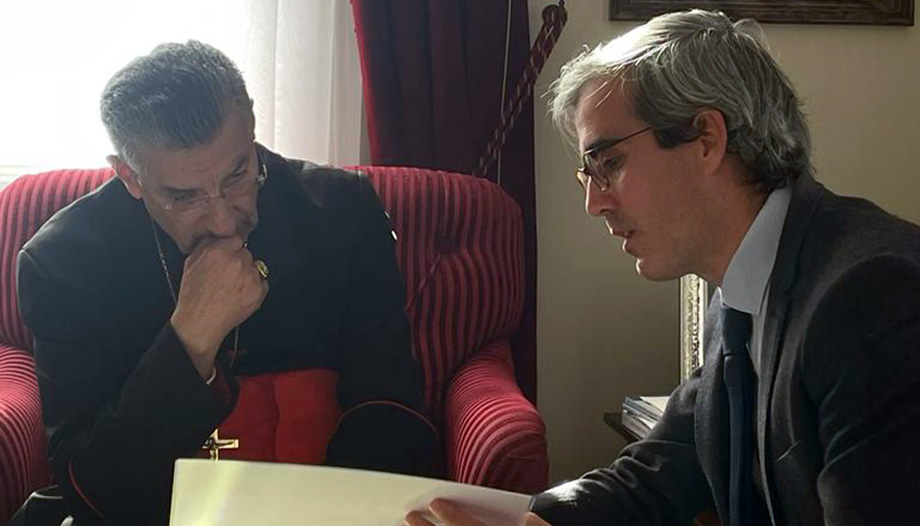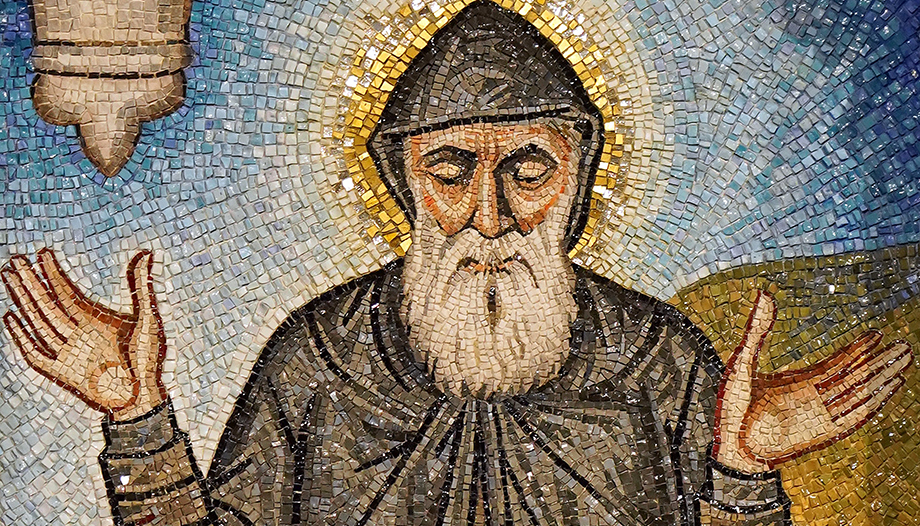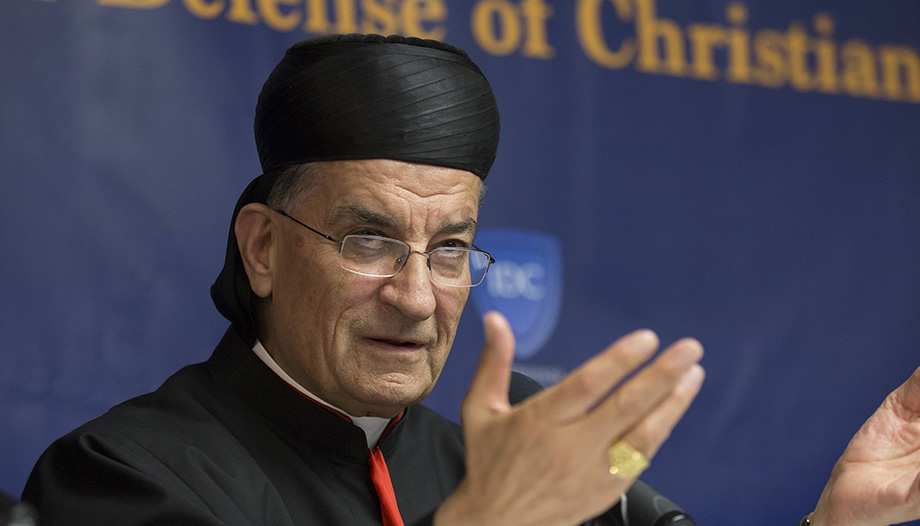A bridge between East and West, between Islam and Christianity, Lebanon is a country that recognizes 18 religious communities in its small territory, between the mountains and the Mediterranean.
In this mosaic of faiths, the Maronite Church has played a leading role. Always united to the Pope, Bishop of Rome, the Maronite Christians are Catholics of the Eastern Rite and represent the largest and most influential Catholic community in the Middle East. At their head is the Maronite Patriarch of Antioch and the whole of the East. He is the most important Christian figure in the country and plays a central role in the public life of the society.
Since 2011, the Maronite Patriarch is His Beatitude Bechara Boutros Rai. Born in 1940, Monsignor Rai is a religious of the Mariamite order, and was ordained a priest in 1967, consecrated bishop in 1986 and elected Patriarch in 2011. In 2012, Pope Benedict XVI named him a cardinal of the Church.
His leadership at the head of the Maronites has been characterized by very strong positions regarding the identity and unity of Lebanon and its neutrality in the field of international relations.
Because of its special place in the history of humanity and of the Christian religion in particular, the Popes have felt Lebanon as a country very present in their prayer and concern. Joaquin Navarro-Valls, the historic spokesman, diplomatic advisor and friend of Pope St. John Paul II, recounts in his memoirs how the Polish Pope kept his head and heart in Lebanon. Cedar Country during the terrible years of the civil war, which even saw clashes between Christian groups.
St. John Paul II was the one who gave Lebanon the name of "message country". Pope Benedict XVI made a historic visit in 2012, and Pope Francis has expressed his willingness to visit the Lebanese people and mentions Lebanon very frequently in his speeches and prayers.
For decades, Lebanon experienced a period of great cultural and economic development that earned it the nickname "the Switzerland of the Middle East", but for several years now it has been mired in an unprecedented political, social and economic crisis.
This delicate situation has been compounded by the war in the southern part of the territory: since October 7, 2023, with the beginning of the conflict in Palestine, hostilities have restarted in southern Lebanon between Hezbollah militias and Israel.
In this context, the Christians of Lebanon play a very particular role and Patriarch Rai has not ceased to raise his voice, strongly recalling the Lebanese identity.
Located 25 kilometers north of Beirut in the Lebanese mountains, Bkerke is the seat of the Maronite Patriarchate since 1823. In this historic place with an incredible view of the Mediterranean, His Beatitude Bechara Boutros Rai welcomes us. It is not the first time that he receives Omnes, since, in 2017, the then magazine Palabra published an interview with His Beatitude.
Lebanon is going through a very serious crisis: a President of the Republic has not been appointed for more than a year, inflation has reached unprecedented levels, there is a lack of basic services and, as of October 7, 2023, war threatens in the south of the country. What is your diagnosis of the situation?
-Unfortunately, our country is sick because it has lost the sense of its mission in the world. John Paul II said that Lebanon, more than being a country, is a "message", and this is its mission: to show the world that Christians and Muslims can and must live together, as brothers. The identity of our country is so particular that a leader of an Arab country said "if Lebanon did not exist, it would have to be created".
There are two important principles of Lebanese identity: the principle of separation of Church and State, and that of cultural multiplicity.
From the first principle follows the principle of citizenship: one is Lebanese not by religion or ethnicity, but through this principle: if one is a citizen, then one is Lebanese. This implies that one is not Christian, Muslim or Druze and, consequently, one has access to citizenship. This principle has been enshrined since the creation of the State of Greater Lebanon in 1920, and is essential because it allows Christians and Muslims to live in peace, without fearing that others will impose their religion on political life.

This principle came to fruition in 1943 with the signing of the so-called National Pact in which the powers of the State were divided according to the different confessions. The idea was to give concrete guarantees to each group.
Thus, the President of the Republic must be a Maronite Christian, the head of the government (Prime Minister) is a Sunni Muslim, and the President of the Chamber of Deputies is a Shiite Muslim. This system was confirmed by the Taëf Accords, which put an end to the civil war in the 1990s.
The second principle is that of cultural multiplicity: Lebanon is a democratic country open to the world, where different cultural sensitivities coexist, and where dialogue and neutrality in international relations are privileged.
Currently, our country is sick because within it there are groups that have deformed its physiognomy and do not respect these fundamental principles. They are not loyal to Lebanon. They do not respect its neutrality. Today we have a war in the south of our country, a war that the Lebanese do not want, but which some groups are bent on provoking. This has made our country isolated from the rest of the world.
What is the Church doing to try to remedy this situation?
-The Church is suffering alongside the Lebanese people, who are losing their strength and dynamic elements in this crisis: not only are many young people leaving a country that they do not see with optimism, but also many professionals, already trained and integrated into economic and social life, have also found or are seeking a better future abroad. The loss is immense.
Our population has become extremely impoverished. Inflation is one of the highest in the world. In the face of this drama, the Church opens its doors to all: our schools, universities, social centers (which help in the search for employment) remain open and active, even though people often cannot afford them.
The assets of the Church are at the disposal of our people, and thousands of people benefit from the various aids. We try to create opportunities for everyone to find work. However, the situation is getting worse and that is why I keep shouting at our leaders through the media: "You are criminals, you are destroying the State, you are impoverishing our people!
The Lebanese love their land, their culture and their homeland. Currently, the Lebanese living abroad, who are the majority, support the country economically. And if the situation allows them to return, they will return, because they love Lebanon.
Do you have hope for the future of the country?
-We are Christians and we have hope. Otherwise, we would not be Christians and we would not be here, where we have been for many centuries.
The Lebanese political system is unique in the world in the sense that political representation and high positions are distributed according to religious creeds. There are those who say that this system has reached its end and it is time to change it, to reform the Constitution. What do you think?
-Our political system, embodied in our Constitution, is magnificent and unique in the world. The problem is not the system, but that some do not respect it. I like to compare it to a marriage: a unique partnership between Christians and Muslims.
Lebanon cannot be only Christian or only Muslim, that would not be Lebanon. A divorce, as some want to impose it, would be fatal. This, logically, generates tensions and effervescence.
In the West, bishops have a role that is perhaps different from yours. How would you define your task as Maronite Patriarch in Lebanese society?
-The Maronite Patriarchs have played a fundamental role in the history of Lebanon: it was they who led the way to the creation of the State of Lebanon in 1920, a process during which Patriarch Elias Hoyek played a leading role.
The Maronite Patriarch is a reference in our country, an authority listened to and appreciated, because of this historical significance he has had. Article 9 of the Lebanese Constitution establishes the principle of personal status, which respects not only the so-called natural law, but also the beliefs of each individual in this country.
Our voice is not that of technical politics, it is that of recalling the moral principles that should guide us. In the West, sadly, we govern without regard for God, and this is how we have laws on abortion, euthanasia and same-sex unions.
The Church is independent of political parties and speaks to the conscience of the people. For these reasons I have not ceased to denounce the crime of not electing a President for our country and maintaining the current situation that generates the impoverishment of our people.
Are there different priorities or sensitivities compared to the Latin Church? Recently, the bishops of Africa stated that they would not apply the document Fiducia Supplicans which allows priests to bless, outside of any liturgical form, couples in an irregular situation.
-First of all, we must remember that in the Catholic Church there is freedom of expression; it is a right that the Church defends and promotes.
Regarding the document Fiducia SupplicansIt seems to me that in Europe there are situations that do not present themselves to us in the same way.
The bishops of Lebanon work in a collegial manner, we meet on the first Wednesday of every month. So, we have decided to set up a committee of bishops to study the document, and depending on what this working group advises, we will decide whether it is necessary for an official document to be issued on our behalf.
St. Charbel, the main Lebanese saint, is known worldwide and recognized for his many miracles. On January 19, an image of him was installed in the Vatican. Why do you think devotion to St. Charbel has spread so much?
-Indeed, St. Charbel is very active and very well known, and the answer to your question cannot be explained: it is a mystery. Perhaps, as a good Lebanese, Charbel knows how to negotiate very well with God to obtain countless favors for those who pray to him with faith.










